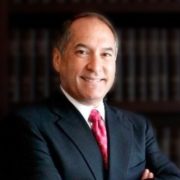ALMOST 20 years ago, the U.S. State Department (DOS) provided guidance to consular officers that they should be “judicious” (use good judgment or common sense) about returning approved petitions to USCIS for revocation. In other words, they should not be “trigger-happy” in returning approved petitions.
DOS warned that Posts “should not use the revocation request process as a means of disposing of problematic cases in which fraud, misrepresentation, or in eligibility for status is only suspected but cannot be clearly established.” Instead, petitions should only be returned to USCIS when the ineligibility has been “clearly established.”
The DOS guidance reminds consular officers that USCIS’s approval of a petition is “prima facie evidence of the applicant’s entitlement to visa status, and that consular offices should not attempt to readjudicate petitions.” Unless a consular officer has clearly established evidence of fraud, they should not be second-guessing USCIS’ approval. Consular officers should “seek revocations “sparingly,” to avoid inconveniencing the petitioners and applicants and creating an additional administrative burden for USCIS.” In “the absence of hard, factual evidence of fraud, misrepresentation or ineligibility for status, consular sections are advised to issue the visa…”
I believe this DOS guidance applies not only to petitions, but also to provisional waivers and other immigration applications and benefits. I’ve discussed in my newspaper columns and on my television show, “Citizen Pinoy,” how the Embassy has been charging people with fraud for having overstayed in the U.S., despite the fact that USCIS had already APPROVED the person’s provisional waiver, thereby forgiving or waving that overstay.
When the Consular officers charges a person with fraud, it results in that person now having to file another waiver with USCIS, where they effectively demonstrate the same “extreme hardship” on their qualifying relative which they had already done when they filed for their provisional waiver. The USCIS already found extreme hardship and approved the provisional waiver!!! By returning the case to USCIS, consular officers are doing exactly what the DOS guidance advised them against doing: second-guessing USCIS’s previous finding and approval, inconveniencing the petitioner and applicant, and most importantly, creating additional administrative burdens for USCIS by having them readjudicate or re-approve a waiver with the same finding of extreme hardship.
I hope consular officers will take to heart this DOS guidance and not be trigger-happy in finding fraud, based on mere suspicions, and especially in provisional waiver cases based on a person “overstaying.”
If you (or your relative) returned to the Philippines on an approved provisional waiver, and were charged with fraud for having overstayed, I would recommend you seek the assistance of an attorney, who can assist you in rectifying the situation.
* * *
Michael J. Gurfinkel has been an attorney for over 35 years and is licensed, and an active member of the State Bars of California and New York. All immigration services are provided by, or under the supervision of, an active member of the State Bar of California. Each case is different and results may depend on the facts of the particular case. The information and opinions contained herein (including testimonials, “Success Stories”, endorsements and re-enactments) are of a general nature, and are not intended to apply to any particular case, and do not constitute a prediction, warranty, guarantee or legal advice regarding the outcome of your legal matter. No attorney-client relationship is, or shall be, established with any reader.
WEBSITE: www.gurfinkel.com
Follow us on Facebook.com/GurfinkelLaw and Twitter @GurfinkelLaw
Call Toll free to schedule a consultation for anywhere in the US:
1-866-487-3465
(866) – GURFINKEL
Four offices to serve you:
LOS ANGELES · SAN FRANCISCO · NEW YORK · PHILIPPINES






